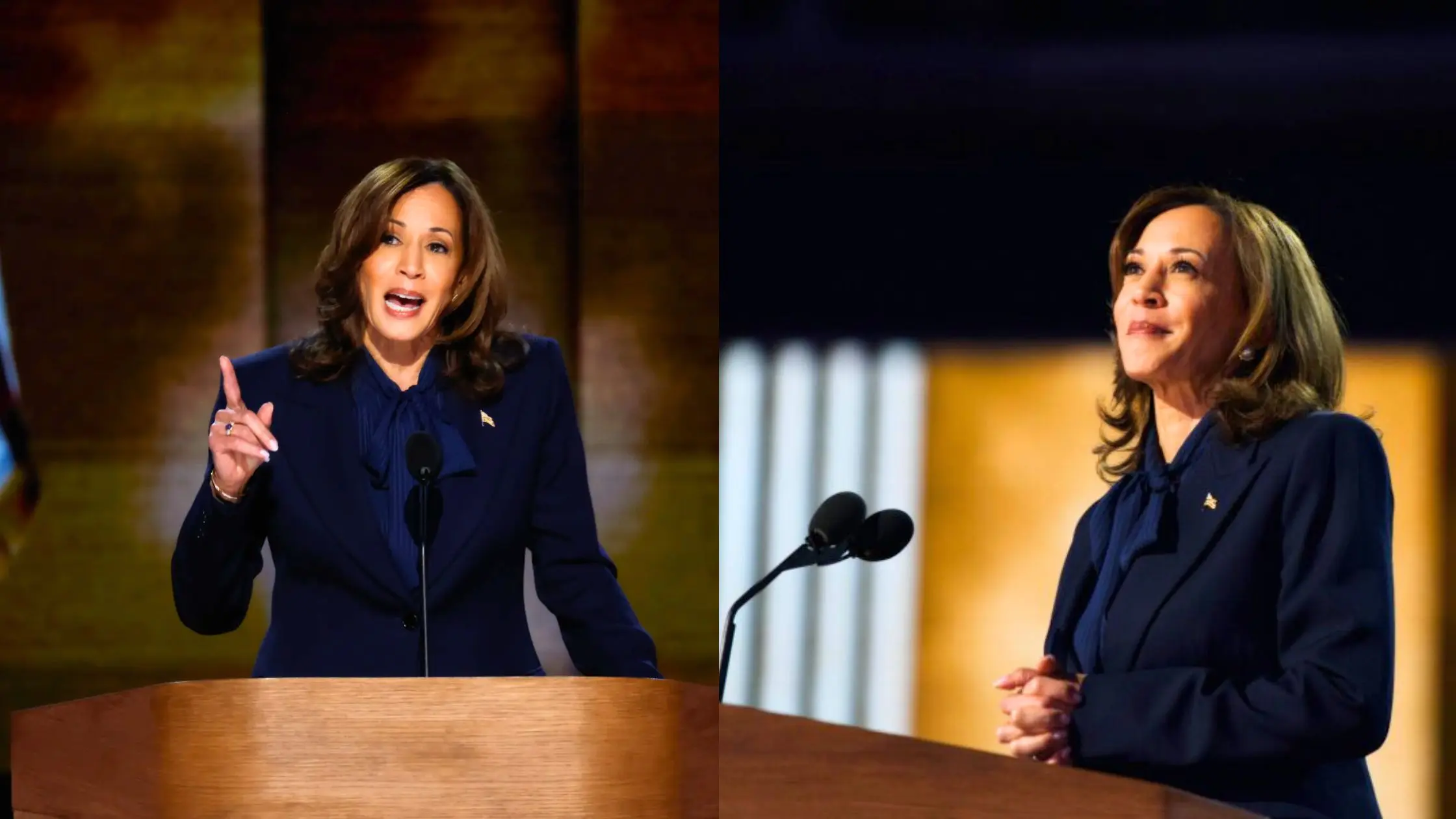In a strategic move that has set political circles abuzz, Vice President Kamala Harris delivered a speech at the Democratic National Convention markedly diverged from her previous progressive stance, instead adopting a more centrist tone.
This pivot, which caught the attention of both supporters and critics, has ignited a fierce debate about the Democratic Party’s positioning for the 2024 presidential election.
As Harris accepted the party’s nomination, her rhetoric echoed themes traditionally associated with moderate Democrats and even some Republicans, leaving many to wonder: Is this a calculated effort to capture the political center, or a genuine evolution of her political identity?
The implications of this shift could reshape the landscape of the upcoming election and potentially redefine the Democratic Party’s appeal to a broader electorate.
Harris’s Centrist Shift Surprises Observers
Political analysts and media pundits were quick to note the marked difference in Harris’s rhetoric compared to her previous campaigns. ABC’s Jonathan Karl remarked that parts of Harris’s speech “could have been delivered at a Republican convention,” highlighting the Vice President’s emphasis on national security and economic issues that typically resonate with moderate voters.

The speech touched on key issues such as border security, economic growth, and a commitment to being a president for “all Americans.” This language, reminiscent of past centrist Democratic and even Republican rhetoric, stood in stark contrast to the progressive platform Harris championed during her 2020 presidential primary campaign.
Paul Begala, a former adviser to Bill Clinton, went so far as to claim that the Democratic Party had “captured the center” with Harris’s speech. This assessment underscores the potential strategic importance of appealing to moderate and independent voters in the upcoming election.
Fact-Checking and Context: A Closer Look at Harris’s Claims
While Harris’s speech was praised for its moderate tone, it also came under scrutiny for several claims that fact-checkers found to be misleading or lacking in context. NPR’s analysis identified approximately 12 statements that warranted closer examination.
Some of the claims that raised questions included:
- Characterizations of former President Trump’s stances on abortion rights and Social Security
- Assertions about Trump’s intentions regarding journalists and political opponents
- Statements about the administration’s plans to address housing shortages and grocery prices
These points of contention highlight the challenge of balancing political messaging with factual accuracy, a common issue in high-stakes political speeches.
Strategic Implications for the Democratic Party
Harris’s apparent shift to the center raises important questions about the Democratic Party’s strategy for the 2024 election. By adopting a more moderate tone, the party may be attempting to broaden its appeal beyond its traditional base.
This approach could be particularly significant in swing states, where moderate voters often play a crucial role in determining election outcomes. However, it also risks alienating progressive supporters who have been a vital part of the Democratic coalition in recent years.
Political scientist Dr. Amanda Johnson commented, “Harris’s speech represents a calculated risk. The Democrats are clearly trying to recapture some of the centrist ground they’ve lost in recent elections. The question is whether they can do this without losing enthusiasm from their progressive base.”
Reactions from Across the Political Spectrum
The response to Harris’s speech has been mixed, with reactions varying widely across the political spectrum:
- Moderate Democrats have largely welcomed the shift, seeing it as a necessary step to win in competitive districts.
- Progressive Democrats have expressed concern, worrying that the party may be abandoning key principles in pursuing electoral success.
- Republicans have been skeptical, with some dismissing the centrist pivot as mere posturing.
Trump Campaign National Press Secretary Karoline Leavitt stated, “Kamala Harris is trying to deceive voters into believing she is a moderate to get elected, but her record proves she is the most dangerously liberal nominee in history.”
Looking Ahead: Implications for the 2024 Campaign
As the 2024 presidential campaign begins, Harris’s DNC speech may be seen as a defining moment in setting the tone for the Democratic strategy. The party’s ability to balance appeals to both centrist and progressive voters could be crucial in determining its success.
Key questions remain:
- Will Harris maintain this centrist positioning throughout the campaign?
- How will progressive Democrats respond to this shift in the long term?
- Can the Democrats effectively counter Republican accusations of insincerity in their move to the center?
Conclusion
Kamala Harris’s DNC speech has undoubtedly shifted the narrative surrounding the Democratic Party’s approach to the 2024 election. By adopting a more centrist tone, Harris and the party leadership appear to be making a strategic play for moderate voters while potentially risking some support from their progressive base.
As the campaign unfolds, all eyes will be on Harris and the Democratic Party to see how they navigate this delicate balance. The success or failure of this centrist pivot could have far-reaching implications not just for the upcoming election, but for the future direction of the Democratic Party as a whole.
In the months ahead, voters and political observers alike will be watching closely to see how this strategy evolves and whether it can deliver the broad coalition of support the Democrats need to secure victory in 2024.

